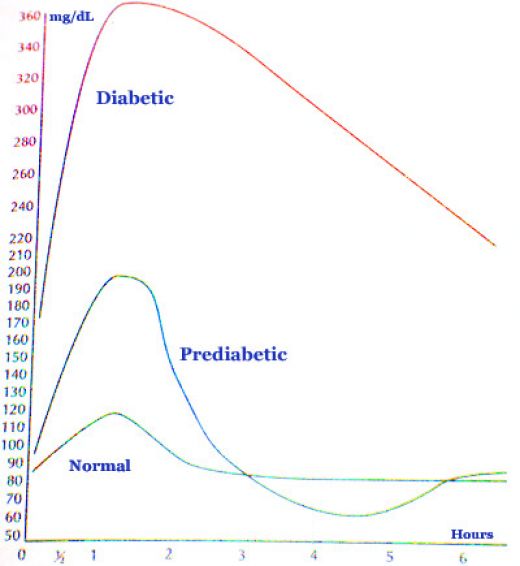Diabetes is a serious health issue that can ultimately create other complications, including death. Living a healthy life after a diabetes diagnosis is possible if you educate yourself and learn the right ways to manage your diabetes. This article has a lot of good tips on managing diabetes.
- If you are a diabetic, you might want to consider adding green tea to your daily diet. Green tea is known for its metabolism-boosting properties. It also flushes toxins from your body, allowing your bodily systems to focus on self-regulation instead.
- You need to be aware of all foods that have high glycemic index, which can raise the level of blood sugar quickly in your body. Foods with a high carbohydrate or sugar content include breads, cereal and most fruit juices. Processed foods are not good for your sugar levels. Try replacing processed foods with the usual suspects: meats, seafood, fruits, and vegetables.

- When you're measuring blood glucose levels, don't use urine ketone testing alone. Your urine's ketone level doesn't give you specific information about your blood sugar level; it only tells you that your sugar level is significantly higher than normal. The ADA tells us that diabetics should use finger sticks and blood tests for more accurate results.
- Diabetes is surrounded with horror stories about amputations and blindness. These types of things will not happen if you know how to take care of yourself. Realize that a healthy, happy and productive life can still continue after being diagnosed with diabetes.
- If you have diabetes, you must take excellent care of your teeth because you have an elevated risk of gum disease. Brush your teeth several times a day and floss every day as well.
- You may have heard of an aunt who became blind or a man whose leg had to be removed as a result of diabetes. While it is true that things like this can happen, chances are they won't. Just because you have been diagnosed with diabetes, this does not mean that your life has to be less productive.
- Make your favorite comfort foods more diabetes-friendly. Many people find the most difficult aspect of diabetes is its restrictive diet. Many assume they have to stop eating these favorite foods entirely. For others, the temptations of their favorite dishes will overcome dietary restrictions. The healthiest solution is using tasteful substitutions to recreate more healthy versions of your favorite dishes. Many dishes can turn into diabetes-friendly meals by using healthier ingredients as alternatives when cooking.
- The slightest variation is a risk. Sadly, many people do not manage their diabetes well enough to achieve good A1C levels. You should shoot for a maximum of 7 percent A1C. This translates into about 150mg/dl average glucose.
- When you first discover that you have diabetes, stay calm. Talk and listen to your doctor, and change the behaviors you have to. You don't have to give up your life because of a diabetes diagnosis.
- Diabetics are at risk of many foot problems. Being careless with your feet, such as walking around barefoot, can lead to complications which might have to be cured through amputation. Follow these points, and the good advice of your diabetic specialist, to make sure your feet remain in tip-top shape.
- Changing your diet can be a great way to help lower your risk factor of contracting diabetes, and switching out fats and sugars with fiber is a great place to start. Choose whole wheat and whole grain foods over their processed counterparts, like white bread, which have a dangerously high glycemic index. Study after study concludes that individuals who eat more whole grain have a much lower risk of contracting diabetes.
- Should you suffer from adult onset diabetes, an amazing spice you can add to your foods without adding calories, sugar and also sodium to your diet program, is cinnamon. Cinnamon brings out the natural sweetness within certain foods without the added sugar that could bring up blood sugar levels. Some researchers believe cinnamon can easily reduce blood sugar levels.
- Don't stuff your face with food, if you suffer from hypoglycemia. While it is important to get adequate sugars from the diet, excess sugar gives higher blood sugar levels, and this causes even more negative problems for the body.
There is a wealth of information that can help you live a healthier life with diabetes. Diabetes can be a life altering dark cloud until you take the right measures to control it. Use the information you learned here to get started and make sure you work hard to get rid of that dark cloud.
 Incorporate small amounts of vinegar into your meals. Ingesting vinegar, before you eat your meals, can keep your blood sugar from going up too fast when you eat. Vinegar has properties that will slow the digestion of starches, and that makes food stay in the stomach for a longer period of time.
Incorporate small amounts of vinegar into your meals. Ingesting vinegar, before you eat your meals, can keep your blood sugar from going up too fast when you eat. Vinegar has properties that will slow the digestion of starches, and that makes food stay in the stomach for a longer period of time. 

 When you're measuring blood glucose levels, don't use urine ketone testing alone. Your urine's ketone level doesn't give you specific information about your blood sugar level; it only tells you that your sugar level is significantly higher than normal. The ADA tells us that diabetics should use finger sticks and blood tests for more accurate results.
When you're measuring blood glucose levels, don't use urine ketone testing alone. Your urine's ketone level doesn't give you specific information about your blood sugar level; it only tells you that your sugar level is significantly higher than normal. The ADA tells us that diabetics should use finger sticks and blood tests for more accurate results.





 Diabetics should stay away from alcohol because it can radically change blood glucose levels; for others, though, moderate alcohol consumption may actually reduce the likelihood of contracting this condition. If you are planning on consuming any type of alcohol, you should make sure to run it past a doctor. The last thing you need are complications with your disease.
Diabetics should stay away from alcohol because it can radically change blood glucose levels; for others, though, moderate alcohol consumption may actually reduce the likelihood of contracting this condition. If you are planning on consuming any type of alcohol, you should make sure to run it past a doctor. The last thing you need are complications with your disease. 



